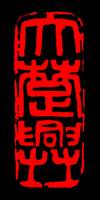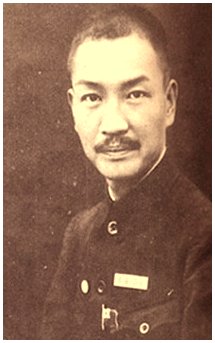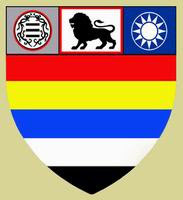After an enduring period of attentive observation upon the vicissitude of Chinese history with a profound self reflection and self examination (under the rigorous academic discipline as in “ontogeny recapitulates phylogeny”), I have come up with the following diction which some might find it to be deeply sinister and cynical, in spite of its ruthless practicality as well as its naked pertinence to reality:
“The Chinese are not very good at repelling foreign invaders, but they are incredibly adept at settling scores with their fellow kind whom they deem to be “heavenly enemy”, (天敌), for whom they “cannot afford to share the same firmament” (不共戴天) and thus vowed to eliminate one another until the bitter end. To wit, the Chinese is the Chinese’s worst enemy.”
With a poignant perspective along a piercing intuition when investigating the long history of our ever-belligerent nature, one finds that the Chinese actually harbors an ever odious antipathy towards a selection of his fellow-breed most venomously than anyone can possibly imagine, thereby he vows to eliminate him with all the energy and resources that’s at his disposal until the goal is finally accomplished. This fact can be demonstrated with our recorded history:
In 770 BC., when the Chinese of Chou Dynasty was under attacks from the barbarians of the Northwest, the story goes that it was a woman’s meddling (褒姒), (an interesting feature of a romanticized version of a moment of historical turmoil that always associates the pending catastrophe with a woman’s licentious seduction), which led to the downfall of West Chou Dynasty, and the capital sacked, but the fact is that all the surrounding dukes and princes were summoned to the emperor’s rescue, and nevertheless had been delinquent at their service, for they know that the foreigners will be gone sooner or later, and they better maintain their own strength for future strife against each other. Hence history starts off a new period known as the East Chou Dynasty with a retreat of the capital to the east and thus turning a new page to an ever-resounding epoch of Spring-Autumn and Warring States, in which the most vicious carnage and onslaught were carried out against each other for centuries to come.
Then there came along another great period which was highly romanticized more than half a millennium later, known as the period of the Three Kingdoms. The prelude commenced itself at the waning phase of the majestic Han Dynasty around 190 A.D., and there was the most notorious great general and statesman, Cao Cao (曹操), who eventually founded the Wei Dynasty, as one of the three kingdoms. Not surprisingly, his heavenly enemy was the other legendary figure, Liu Bei(刘备), and through out that tumultuous time period had fought many great battles against one another. The Barbarians on the north was simply neglected to be appeased, either with tacit territorial concession and condoning their growing power, or marrying off Chinese women to the princes of the nomads, another distinct feature that is to be one of the most shameless, intriguing, and emasculating way of Chinese diplomatic policy that is to retain a major role for centuries. Eventually the whole Northern China Proper was to fall under foreign nomadic powers, who actually claimed to be the most legit heir of China since their mothers were of royal blood of Han Dynasty. These foreign nomadic powers were to be sinonized just as their future counterparts, e.g., the Mongolians(蒙古人), the Tanguts(西夏人), the Khitans(契丹人), the Jurchens(女真人), the Manchus(满洲人), etc. whom collectively known as the Tartars, in a matter of few hundred years as the lord of China during different phases of history, and whose identity were eventually assimilated under the umbrella of the generic reference as
the Chinese.
This mentality of a Chinese hates another Chinese the most has been inherited until the dawn of our modern era. As much as the Manchus would like to distinguish themselves as the privileged class, their empire was still known to be the Chinese Empire and their blue-blooded princes and royalties were to be educated in substantial quantity of classic Chinese culture. So when the real foreigners/barbarians were at their door steps, they were to retain the same-old tradition of typical Chinese mentality. After loosing two Opium Wars and capitulating to the British and the French, they were to fought allegedly, the bloodiest war of 19th century against Hong Xiuquan’s (洪秀全) Heavenly Kingdom Army, known as the Taipin Rebellion.
When the Manchu finally abdicated in 1911 to a republican China under its former premier and now president Yuan Shikai(袁世凯), the Chinese were to remain adherent to this age-old golden truth. Therefore, Yuan’s self-perceived heavenly enemy was to be the canonized father of the republic, Sun Zhongshan(孙中山), and vise-a-versa, who launched a so-called abortive and ill-hatched Second Revolution. The whole campaign was put down without much difficulty with Yuan’s army and ended with Sun’s exile to Japan. Despite Dr. Sun’s stringent criticism of foreign imperialism, he had spent his whole life fighting first, the Manchus, and then Yuan, and after Yuan’s death, the Beijing government who were the protégées of Yuan. Ironically, Dr. Sun had shown great sympathy toward the Japanese and the Russians, both proved to be the worst foreigners the Chinese had encountered, the former saw him as an asset against Yuan’s China, and the latter saw his clique as a potential agent to insert its own furtive subversion of China, which saw its materialization in the initial phase of CCP, who toed the Soviet line for well over a few decades.
After Dr. Sun’s abrupt death in 1925, his heir apparent, the world-renowned and one of the greatest statesmen of 20th century, Chiang Kai Shek, was to assume the role as the ultimate ruler of China. Despite the republican ethos and Dr. Sun’s egalitarian philosophy of the so-called Three-People-ism that his party espouses, his realpolitik approach on the implementation of his statecraft was ten-times worse than that of Yuan’s, his master’s heavenly enemy who was being accused of being dictatorial. Mr. Chiang’s heavenly enemy was destined to be Mao Zedong, another homey fellow compatriot, who likewise, saw Chiang as the worst adversary, contrary to popular belief that Japan, Soviet Union and United States were Mao’s greatest foes, a mythology propagated by CCP propaganda out of pure political necessity at different time period.
When China was to face her worst foreign invasion, the Japanese militarist aggression, both Chiang and Mao had conserved a great deal of energy and strength, to a greater and lesser degree, in order to complete the elimination of one another, quintessentially encapsulated in one of the most notable remarks in the old Chinese quip as “the Japanese are an ailment of the skin, while the [Chinese] Communists are the disease of the heart”, thus substantiates once again, the old Chinese Way without much explanation as history confers the fact itself.
I’d have to add that if, just a hypothetical speculation with no applicability to reality, that the Japanese Emperor Hirohito and his samurai militarists were to be captured at the height of Sino-Japanese War by either Chiang or Mao, they’d have given them an honorable death as in decapitation or their own style of hara-kiri (切腹) suicide. However, if they’d have captured one another, they’d have their foe chopped up to a thousand pieces, or worse, they’d have let the other lived, in perpetual suffering and humiliation as demonstrated in a few instances from our historical past. One of the most notorious one was the King of Wu(夫差) in the 5th century B.C., who had captured his neighboring kingdom Yue and its king(勾踐), he kept the King of Yue alive as his personal slave, whose responsibility was to clean up the stools of his master’s stable, and was said to have personally tasted his master’s feces to determine his health. The legend goes that the master was so flattered and satisfied, so that he disbarred the captive and let him return to his kingdom. The king of Yue was said to taste the bitter gallbladder of a pig everyday in order to retain a vigilance of his suffering inflicted by his heavenly enemy, and eventually had his vengeance fulfilled by vanquishing the kingdom Wu.
After Mao had took control of China in 1949, he was to practice the same old mentality, when he got Chiang nipped out of existence in China Proper, and found the conquering of the island of Taiwan militarily beyond his technological capacity, and thus left his foe alone in that tiny island. (This is proved to be a de facto victory in terms of historic context; one has to remember that when The Min Dynasty kicked out the Mongols, they still existed to the north of Mongolian Proper. And when the Manchus conquered China, the Chinese of Min Dynasty established themselves on the Island of Taiwan, formerly known as Formosa, and who kicked out the feeble Portuguese colonizers in due course.) The next stage of Mao’s rule was the infamous Red Terror which was to be decades-long campaign waged at fellow-compatriots. He was to devote most of his energy and time at eradicating bad elements from the common stock under different brands of condemnation at whim. The death toll of the Chinese killed under Mao’s regime was to reach an astronomical figure and thus testified once again the ever ominous thesis I have put forward in this essay:
The Chinese is, and continue will be, another Chinese’s worst and heavenly enemy.
Thus spake Dachuxing




